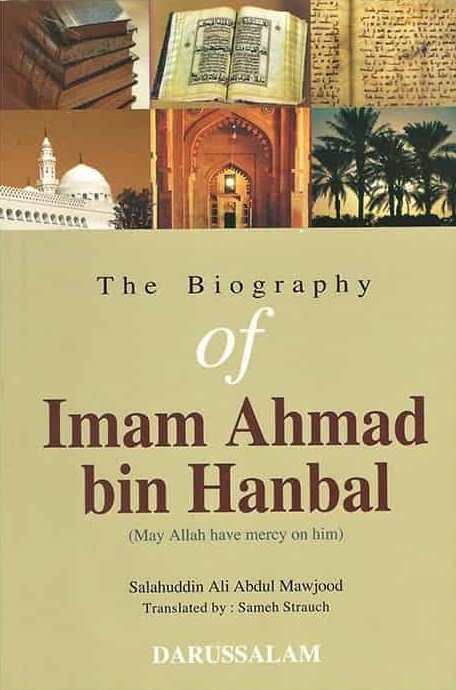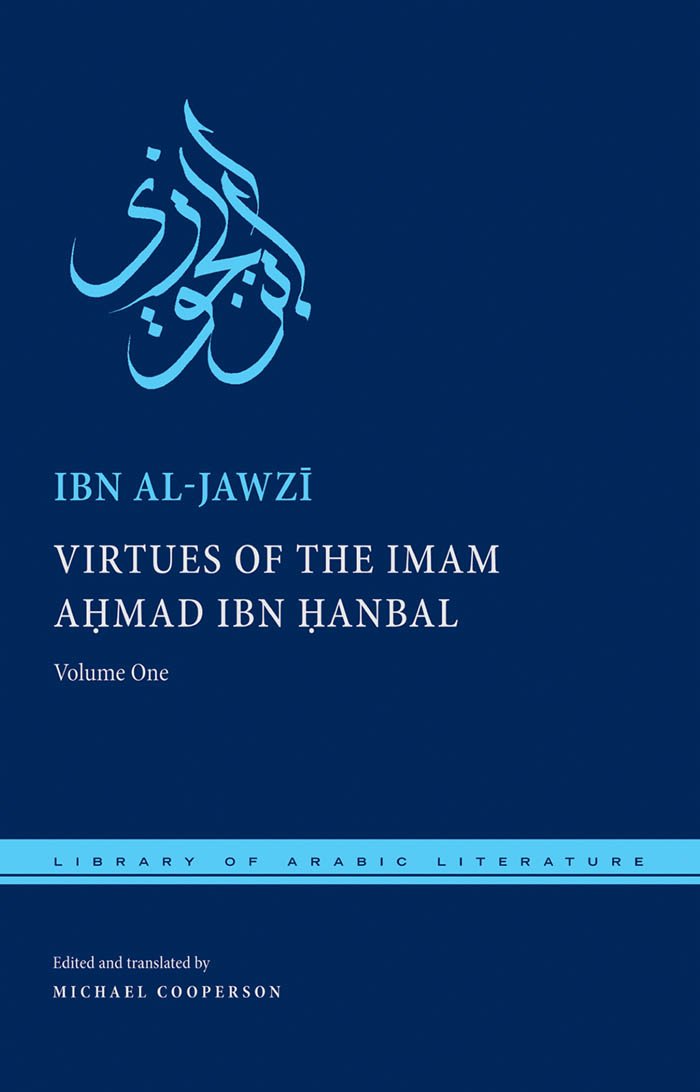#HanbalAdvice
A thread on advice regarding studying the Hanbali Madhab and points of consideration.
 https://abs.twimg.com/emoji/v2/... draggable="false" alt="⬇️" title="Pfeil nach unten" aria-label="Emoji: Pfeil nach unten">
https://abs.twimg.com/emoji/v2/... draggable="false" alt="⬇️" title="Pfeil nach unten" aria-label="Emoji: Pfeil nach unten"> https://abs.twimg.com/emoji/v2/... draggable="false" alt="⬇️" title="Pfeil nach unten" aria-label="Emoji: Pfeil nach unten">
https://abs.twimg.com/emoji/v2/... draggable="false" alt="⬇️" title="Pfeil nach unten" aria-label="Emoji: Pfeil nach unten"> https://abs.twimg.com/emoji/v2/... draggable="false" alt="⬇️" title="Pfeil nach unten" aria-label="Emoji: Pfeil nach unten">
https://abs.twimg.com/emoji/v2/... draggable="false" alt="⬇️" title="Pfeil nach unten" aria-label="Emoji: Pfeil nach unten">
A thread on advice regarding studying the Hanbali Madhab and points of consideration.
1. Absolutely *do not* study works of contemporary scholars such as AlSharh AlMumti by Ibn Uthaymin that teach comparative fiqh through Hanbali text or have their own opinions infused in them
This is not studying Hanbali Fiqh. It& #39;s personal opinions using the Hanbali madhab
This is not studying Hanbali Fiqh. It& #39;s personal opinions using the Hanbali madhab
Fiqh is studied for a variety of reasons:
A. Studying in order to reach tafaquh: being able to und rulings, evidences for them, rational & principles for how they were derived, and how to apply those principles
B. To practice faith and know what to do
Cont& #39;d...
A. Studying in order to reach tafaquh: being able to und rulings, evidences for them, rational & principles for how they were derived, and how to apply those principles
B. To practice faith and know what to do
Cont& #39;d...
If you are aiming for (A) - a student of knowledge trying to gain understanding of the science of Fiqh and Usul Al Fiqh
You do *not* begin to study works of fiqh through comparative fiqh. That is not tafaqquh.
You& #39;d be doing taqlid of that teacher & their rationale & opinions.
You do *not* begin to study works of fiqh through comparative fiqh. That is not tafaqquh.
You& #39;d be doing taqlid of that teacher & their rationale & opinions.
If you are aiming for (B) - you just want to know what Islam says and how to practice
It& #39;s simple:
Follow any teacher you trust and go with it
Dont Mufti Google search or Sh YouTube your faith
Take the time to learn your faith with a teacher!
Have 2 or 3 you ask questions
It& #39;s simple:
Follow any teacher you trust and go with it
Dont Mufti Google search or Sh YouTube your faith
Take the time to learn your faith with a teacher!
Have 2 or 3 you ask questions
One cannot and will not be able to understand Fiqh at the level of comparitive Fiqh and weighing opinions of scholars and their evidences without knowing Arabic.
Write it down
Ingrain it
Itll save you headache and heartache.
How can one und reasonings of scholars you dont und?
Write it down
Ingrain it
Itll save you headache and heartache.
How can one und reasonings of scholars you dont und?
If someone is studying in english with a teacher who is teaching comparative - plain and simple it is learning Fiqh to practice according to that specific teacher (category B).
It is not the study of fiqh, it is this individuals views in fiqh.
One doesnt und comparative fiqh.
It is not the study of fiqh, it is this individuals views in fiqh.
One doesnt und comparative fiqh.
2. Rulings in Islam are 3 types
1- Base ruling : AlHukm AlShari (or AlAsli) - this is usually accord to a school of Fiqh called a madhab
2- Fatwa: scenario or context based answers tailored to specific situations - an answer you receive is NOT BINDING & you can ask someone else
1- Base ruling : AlHukm AlShari (or AlAsli) - this is usually accord to a school of Fiqh called a madhab
2- Fatwa: scenario or context based answers tailored to specific situations - an answer you receive is NOT BINDING & you can ask someone else
And
3- Qada: judicial law, business litigation, marriage, divorce, inheritance, takfir on specific cases, etc - this is done by someone at the level of being a judge.
This is binding islamically if officiated as a judicial case.
3- Qada: judicial law, business litigation, marriage, divorce, inheritance, takfir on specific cases, etc - this is done by someone at the level of being a judge.
This is binding islamically if officiated as a judicial case.
Recognize the difference between studying Fiqh, and taking Fatwa and Qadha.
Recognize who you should ask & what their qualifications are.
Where & w whom have they studied Fiqh
What did they study & credentials
Do they und & relevant to you
Are they trustworthy?
Divisive?
Recognize who you should ask & what their qualifications are.
Where & w whom have they studied Fiqh
What did they study & credentials
Do they und & relevant to you
Are they trustworthy?
Divisive?
Once you understand what it is you& #39;re actually studying and why
Become more aware of the Hanbali school of fiqh.
It is of course derived from Imam Ahmad b Hanbal Al-Shaybani d. 241 H/855 CE
radyAllahu anhu wa rahimah
Learn about who he was and his life
Become more aware of the Hanbali school of fiqh.
It is of course derived from Imam Ahmad b Hanbal Al-Shaybani d. 241 H/855 CE
radyAllahu anhu wa rahimah
Learn about who he was and his life
The Life of Imam Ahmad with captions in english
You& #39;re free to also watch this series which has been said is good.
I havent watched it yet
(Note: historical drama doesn& #39;t actually give you insight into history. Do your work & read books Ive recommended) https://youtu.be/JRSEuQdi3yU ">https://youtu.be/JRSEuQdi3...
You& #39;re free to also watch this series which has been said is good.
I havent watched it yet
(Note: historical drama doesn& #39;t actually give you insight into history. Do your work & read books Ive recommended) https://youtu.be/JRSEuQdi3yU ">https://youtu.be/JRSEuQdi3...
4. What are some special characteristics of the Hanbali madhab?
The Imam& #39;s particular care for the hadith of the Prophet and Sunnah that it even is considered in the case base scenario aspect of applied Fiqh
The myriad of views within the madhab sometimes encompass all madhahib
The Imam& #39;s particular care for the hadith of the Prophet and Sunnah that it even is considered in the case base scenario aspect of applied Fiqh
The myriad of views within the madhab sometimes encompass all madhahib
The madhab is a balance of knowledge of hadith, sciences of the Quran, their application in light of the developments of Usul Al Fiqh.
Hanbalis existed strong from Egypt and spread as far as Afghanistan. Herat was known for well respected Hanablis like Abu Ismail Al Harawi.
Hanbalis existed strong from Egypt and spread as far as Afghanistan. Herat was known for well respected Hanablis like Abu Ismail Al Harawi.
What should you not do if you follow the Hanbali madhab?
1. Never, ever, claim "the Hanbali madhab is closest to the Sunnah or hadith." This is absolutely ignorant.
2. Madhab sloganeer or go on a campaign that "our madhab is the best."
All four madhahib are the honor of Islam.
1. Never, ever, claim "the Hanbali madhab is closest to the Sunnah or hadith." This is absolutely ignorant.
2. Madhab sloganeer or go on a campaign that "our madhab is the best."
All four madhahib are the honor of Islam.

 Read on Twitter
Read on Twitter https://abs.twimg.com/emoji/v2/... draggable="false" alt="⬇️" title="Pfeil nach unten" aria-label="Emoji: Pfeil nach unten">https://abs.twimg.com/emoji/v2/... draggable="false" alt="⬇️" title="Pfeil nach unten" aria-label="Emoji: Pfeil nach unten">" title=" #HanbalAdviceA thread on advice regarding studying the Hanbali Madhab and points of consideration. https://abs.twimg.com/emoji/v2/... draggable="false" alt="⬇️" title="Pfeil nach unten" aria-label="Emoji: Pfeil nach unten">https://abs.twimg.com/emoji/v2/... draggable="false" alt="⬇️" title="Pfeil nach unten" aria-label="Emoji: Pfeil nach unten">https://abs.twimg.com/emoji/v2/... draggable="false" alt="⬇️" title="Pfeil nach unten" aria-label="Emoji: Pfeil nach unten">" class="img-responsive" style="max-width:100%;"/>
https://abs.twimg.com/emoji/v2/... draggable="false" alt="⬇️" title="Pfeil nach unten" aria-label="Emoji: Pfeil nach unten">https://abs.twimg.com/emoji/v2/... draggable="false" alt="⬇️" title="Pfeil nach unten" aria-label="Emoji: Pfeil nach unten">" title=" #HanbalAdviceA thread on advice regarding studying the Hanbali Madhab and points of consideration. https://abs.twimg.com/emoji/v2/... draggable="false" alt="⬇️" title="Pfeil nach unten" aria-label="Emoji: Pfeil nach unten">https://abs.twimg.com/emoji/v2/... draggable="false" alt="⬇️" title="Pfeil nach unten" aria-label="Emoji: Pfeil nach unten">https://abs.twimg.com/emoji/v2/... draggable="false" alt="⬇️" title="Pfeil nach unten" aria-label="Emoji: Pfeil nach unten">" class="img-responsive" style="max-width:100%;"/>




